In many documents of our Party, the issue of national independence associated with socialism has always been affirmed. The Platform for national construction in the transitional period to socialism (supplemented and developed in 2011) affirms one of the great lessons of our country's revolution: "Firmly grasp the flag of national independence and socialism - the glorious flag that President Ho Chi Minh handed over to today's generation and future generations. National independence is a prerequisite for implementing socialism and socialism is the solid foundation to ensure national independence. Building socialism and defending the socialist Fatherland are two closely related strategic tasks". The document of the 12th National Party Congress affirms: "Firmly adhere to Marxism-Leninism, Ho Chi Minh's thought, creatively apply and develop in accordance with socialism; firmly adhere to the path of innovation".
Vietnam's historical reality in the 20th century and the early years of the 21st century has proven that the choice of our Party and People was completely correct.
The Vietnamese people have a tradition of patriotism and resistance against foreign invaders. Since the French colonialists invaded our country, the patriotic movement has risen strongly. Uprisings have continuously broken out across the country, attracting a large number of people, scholars, and even a part of feudal officials. The Can Vuong movement, the Yen The uprising; the Duy Tan, Dong Du, Yen Bai uprising movements and dozens of other struggles were all brutally suppressed and failed by the French colonialists. More than ever, national liberation became a basic, objective requirement of Vietnamese society - a colonial, semi-feudal society. The cause of national liberation of Vietnam at that time was in a "dark situation with no way out". By what path and which class was capable of shouldering that historical mission?
History has the answer. The birth of Marxism affirmed that capitalism would definitely be replaced by a better regime - a communist regime without exploitation of man by man and the gravedigger of capitalism was the working class - the product of the capitalist industrial revolution. It was a "thunderbolt" in the heart of capitalism at its peak, after defeating feudal despotism and expanding throughout the world .
Studying the history of human society, C. Marx generalized it through the development of successive modes of production. According to C. Marx's point of view, the change of one socio-economic form to another must have the condition that the old socio-economic form has lost its ability to develop itself and become a social obstacle. Capitalism will inevitably be replaced by socialism, and that will happen in countries where capitalism has developed to its peak. It was V. Lenin and the Russian Bolshevik Party who creatively applied C. Marx's theses to the historical circumstances of Russia when they determined: The working class seizes power, then relies on its own power to build socialism.
Right at the time when capitalism seemed to be at its peak, the Russian October Revolution broke out in 1917, opening a new development trend in world history. If before the October Revolution, the capitalist regime had developed to the point that people hailed it as a “destiny” or “eternal order”, then after the October Revolution, everyone saw that the “chains” that had imprisoned the world had been broken. The overthrow of order created a chain reaction of a series of liberation struggles of unprecedented scale and depth in human history.
Obviously, the Russian October Revolution that “shook the world” changed the nature of the era, the central class of the era, and the role of revolutionary leadership. Therefore, the path to resolving social contradictions, revolutionary forces, and revolutionary methods also changed. The Russian October Revolution was not only a guiding torch but also made great practical contributions, changing the internal elements of capitalism. The October Revolution was the glory of the proletariat along with hundreds of millions of urban and rural workers in Russia. They overthrew the domination of the bourgeoisie and feudalism, and won the right to control their own lives. It was the victory of a new trend: nationalism and socialism.
The whole situation of the world, through many ways, had a strong impact on Vietnam - where "the brutality of capitalism had prepared the ground; communism only had to sow the seeds of liberation". Nguyen Ai Quoc was the one who nurtured and cultivated the Vietnamese revolution. He went from patriotism to socialism. In him, Vietnamese patriotism, Vietnamese mettle and special qualities "encountered" Marxism-Leninism, which forged Ho Chi Minh's ideology. Marxism-Leninism combined with the patriotic movement and the Vietnamese workers' movement as the basis for the birth of the Communist Party of Vietnam in 1930. This event was a milestone marking the combination of national and class, national and international, national and socialism factors in the nature of the Party. As soon as it was born, the Party affirmed: “Advocating bourgeois democratic revolution and land revolution to move towards a communist society. President Ho Chi Minh pointed out that only socialism and communism can liberate oppressed peoples and workers around the world from slavery; bringing to everyone, regardless of race and origin, a good society associated with freedom, equality and fraternity.”
Therefore, the choice of the goal of national independence and socialism by our Party and People is an objective necessity. Historically, it is completely consistent with the movement of the Vietnamese revolution and the development trend of the times; in terms of needs, it is completely derived from the specific conditions of a colonial, semi-feudal country and the burning aspirations of the Vietnamese people; in terms of society, it is the most fundamental system of values that determines the development of Vietnam today and tomorrow. National independence must truly be independent in politics, economy, culture, and foreign affairs. National independence requires the elimination of the oppression, exploitation, and enslavement of one nation over another in terms of economy, politics, and spirit. Therefore, independence is associated with freedom and equality, the internal affairs of a nation and people must be resolved by that nation and people, without outside interference. Socialism implements national independence to pave the way for economic prosperity and cultural and spiritual diversity; fully realizing the people's power. National independence and socialism become the system of values for Vietnam's development, under the Party's banner, creating the character, mettle and position of Vietnam.
Recognizing and acting according to that choice and system of values, from 1930 to the present, the Communist Party of Vietnam, founded and trained by President Ho Chi Minh, has led our people to carry out a long and arduous revolutionary struggle, overcoming countless difficulties and challenges and achieving great victories: the August Revolution in 1945, the Dien Bien Phu Victory in 1954, and the Great Spring Victory in 1975.
Through 79 years of winning and maintaining independence, building socialism and defending the Fatherland, 70 years of the historic Dien Bien Phu Victory, especially 38 years of renovation, with that system of values, the Communist Party of Vietnam deserves to represent the Vietnamese spirit in maintaining the socialist orientation, independence and autonomy in all domestic and foreign policies and guidelines, turning our country from a colonial, semi-feudal country into an independent, free nation, developing in the direction of socialism; our country has escaped from poverty and underdevelopment, is promoting industrialization, modernization, international integration, and has an increasingly high position in the international arena.
Thus, for Vietnam, national liberation and socialism are not only the goal, the need, the platform for action, the calling flag, but also the driving force and the steadfast belief. National liberation associated with socialism is the combination of two strengths into a new driving force, the source of victory for the Vietnamese revolution today and tomorrow. The system of values of national liberation and socialism is the goal, the ideal in line with the trend of the times, for the goal of a rich people, a strong country, democracy, fairness, and civilization./.
MSc. Nguyen Tan Hai
Source


![[Photo] Standing member of the Secretariat Tran Cam Tu chaired a meeting with Party committees, offices, Party committees, agencies and Central organizations.](https://vphoto.vietnam.vn/thumb/1200x675/vietnam/resource/IMAGE/2025/7/1/b8922706fa384bbdadd4513b68879951)



















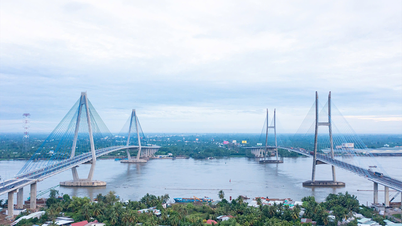




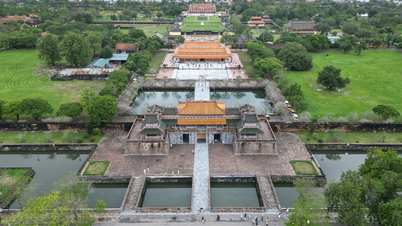





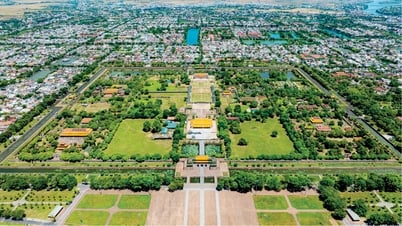






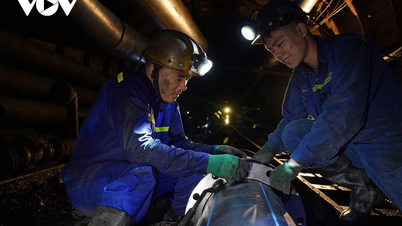









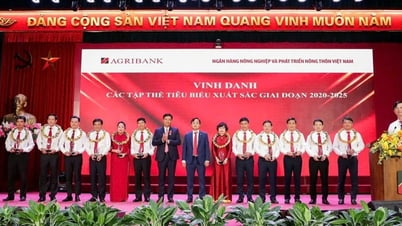



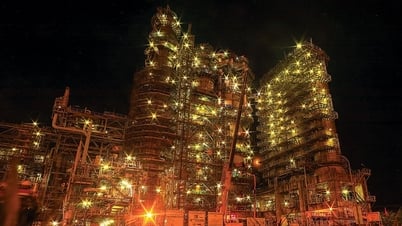



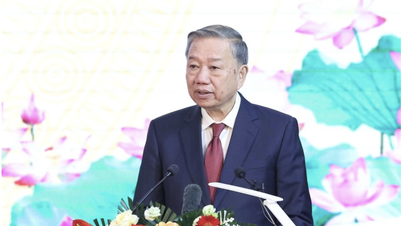


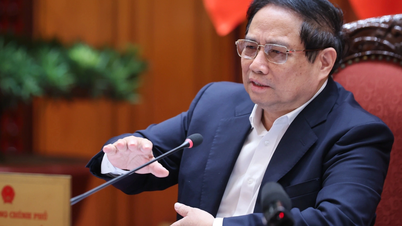




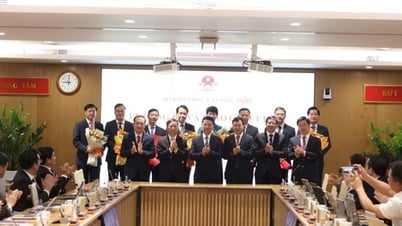































Comment (0)